Minister of State Administration on an official visit to Portugal to strengthen cooperation in decentralisation, electoral matters, digitalisation and administrative modernisation

On February 15th, 2024, the Minister of State Administration, Tomás do Rosário Cabral, ended an official visit to Portugal, where he held several strategic meetings with government officials, mayors, and representatives of other Portuguese institutions to strengthen bilateral cooperation in decentralisation, electoral matters, digitalisation and administrative modernisation. 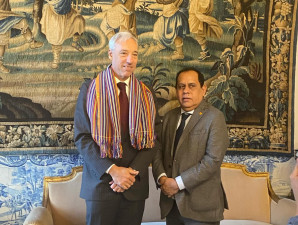
Intending to deepen collaboration between the two countries, Minister Tomás Cabral met with the Secretary of State for Digitalization and Administrative Modernization, Mário Campolargo, and officials from the Agency for Administrative Modernization, as well as with the Minister for Territorial Cohesion, Ana Abrunhosa, the Portuguese Minister for Foreign Affairs, João Cravinho, and the President of the Camões Institute, IP, Ana Fernandes. 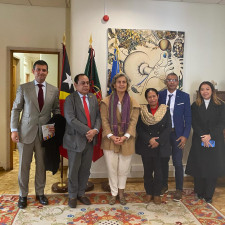
Minister Tomás Cabral also discussed issues related to municipal administration with Portuguese mayors, including the Mayor of Figueira da Foz, Pedro Santana Lopes, and the Mayor of Cascais, Carlos Carreiras. The last meeting, part of a cooperation protocol between the municipalities of Cascais and Viqueque, covered aspects of economic, cultural and educational exchange and promoting the Portuguese language in Timor-Leste. 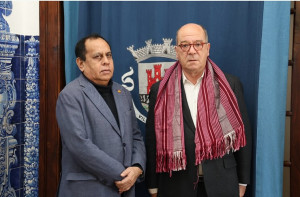
The Minister also met with the Secretary General of the Union of Portuguese Speaking Capital Cities (UCCLA), Vítor Ramalho, and representatives of Lisbon City Council. In this context, the progress of the project "Partnership for Strengthening Urban Governance, Social Inclusion and Promotion of Entrepreneurship in Dili, Timor-Leste", financed by the European Union and implemented by UCCLA, the Dili Municipal Authority and Lisbon City Council (CML), was analysed. 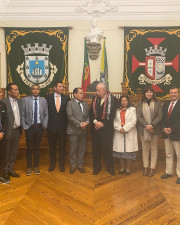
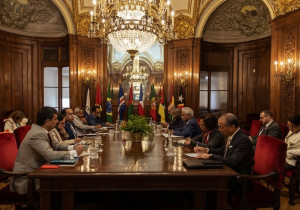
During his stay in Portugal, Minister Tomás Cabral also met with the Executive Secretary of the CPLP, Zacarias da Costa, to discuss the common agenda on the challenges of digitalisation, administrative modernisation, and electoral matters.










































